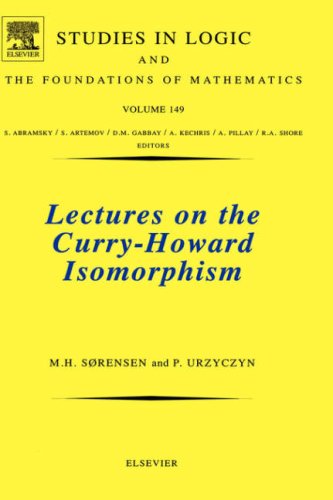
Lectures on the Curry-Howard Isomorphism
by Morten Heine B. Sorensen, Pawel Urzyczyn
Publisher: Elsevier Science 2006
ISBN/ASIN: 0444520775
Number of pages: 273
Description:
The Curry-Howard isomorphism states an amazing correspondence between systems of formal logic as encountered in proof theory and computational calculi as found in type theory. This book give an introduction to parts of proof theory and related aspects of type theory relevant for the Curry-Howard isomorphism. It can serve as an introduction to any or both of typed lambda-calculus and intuitionistic logic.
Download or read it online for free here:
Download link
(1.3MB, PDF)
Similar books
 Formal Language Theory for Natural Language Processing
Formal Language Theory for Natural Language Processingby Shuly Wintner - ESSLLI
This text is a mild introduction to Formal Language Theory for students with little or no background in formal systems. The motivation is Natural Language Processing, and the presentation is geared towards NLP applications, with extensive examples.
(11068 views)
 Categories, Types, and Structures
Categories, Types, and Structuresby Andrea Asperti, Giuseppe Longo - MIT Press
Here is an introduction to category theory for the working computer scientist. It is a self-contained introduction to general category theory and the mathematical structures that constitute the theoretical background.
(19258 views)
 Lecture Notes on Static Analysis
Lecture Notes on Static Analysisby Michael I. Schwartzbach - IT University of Copenhagen
These notes present principles and applications of static analysis of programs. We cover type analysis, lattice theory, control flow graphs, dataflow analysis, fixed-point algorithms, narrowing and widening, control flow analysis, pointer analysis.
(8342 views)
 Dictionary of Programming Languages
Dictionary of Programming Languagesby Neal Ziring
The Dictionary of Programming Languages is an online compendium of computer coding methods assembled to provide information and aid your appreciation for computer science history. The dictionary currently has over 120 entries.
(13859 views)